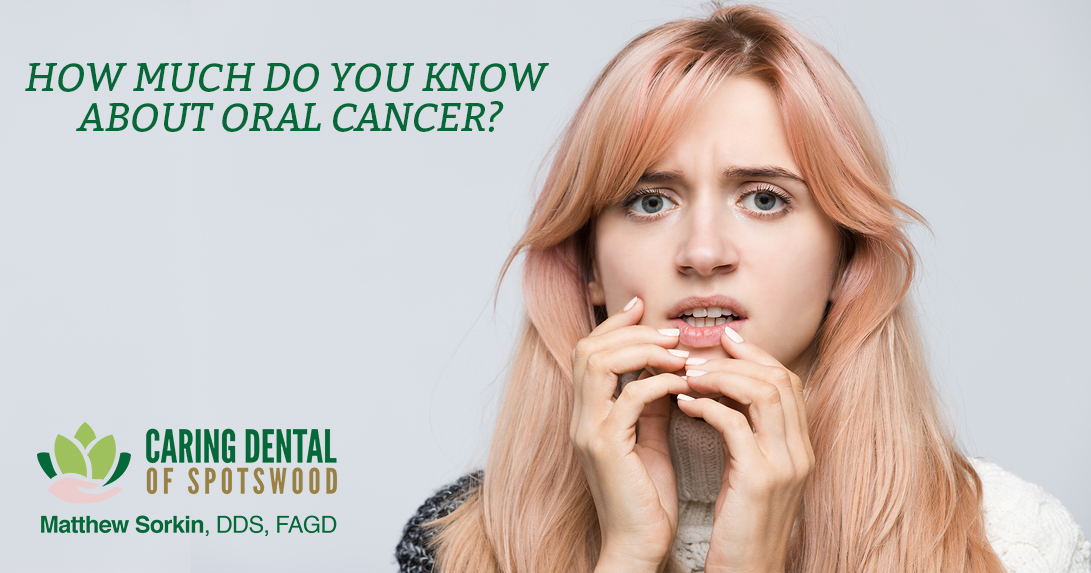Good oral hygiene practices, dental exams, and cleanings are essential for optimal oral health. Did you know there is a serious oral health condition frequently mistaken for other health problems? It can develop with no symptoms. Undetected, it can be life-threatening, but with early intervention, the outcome is favorable.
What Is Oral Cancer?
Cancer is an uncontrolled growth of cells that invade and damages tissue. Oral cancer may present as a growth or sore in the mouth that does not go away. It can appear on the lips, tongue, hard or soft palate, the floor of the mouth, and throat.
Symptoms of Oral Cancer
- Lump or growth inside the mouth
- Red, white, or speckled patches in the mouth
- Numbness, pain, or tenderness in the mouth
- Mouth sores that don’t heal
- Problems swallowing, chewing, or speaking
- Unexplained hoarseness or a chronic sore throat
- Ear pain in one ear
- Unexpected weight loss
According to the American Cancer Society, men are twice as likely to develop oral cancer than women, and men over the age of 50 have the highest risk. Around 25 percent of oral cancer diagnosis occurs with no known cause.
Risk Factors
- Use of tobacco products is a significant risk factor for developing oral cancer.
- Oral cancers are six times more common in heavy drinkers than non-drinkers.
- Certain strains of HPV increase oral cancer risk.
- Oral cancer can occur in someone with a family history of oral cancer.
- Too much exposure to the ultraviolet rays of the sun can increase your risk.
- People age 55 or older are most frequently diagnosed with oral cancer.
With early detection, the survival rate for patients with oral cancer is encouraging. Visit us as soon as possible if you’re experiencing symptoms lasting longer than two weeks.
Preventive measures to avoid oral cancer include: limiting sun exposure, avoiding all tobacco products, and refraining from excessive drinking. Also, get regular dental exam and cleanings to catch any changes early. Contact my office to schedule an appointment.
Best,
Dr. Sorkin







